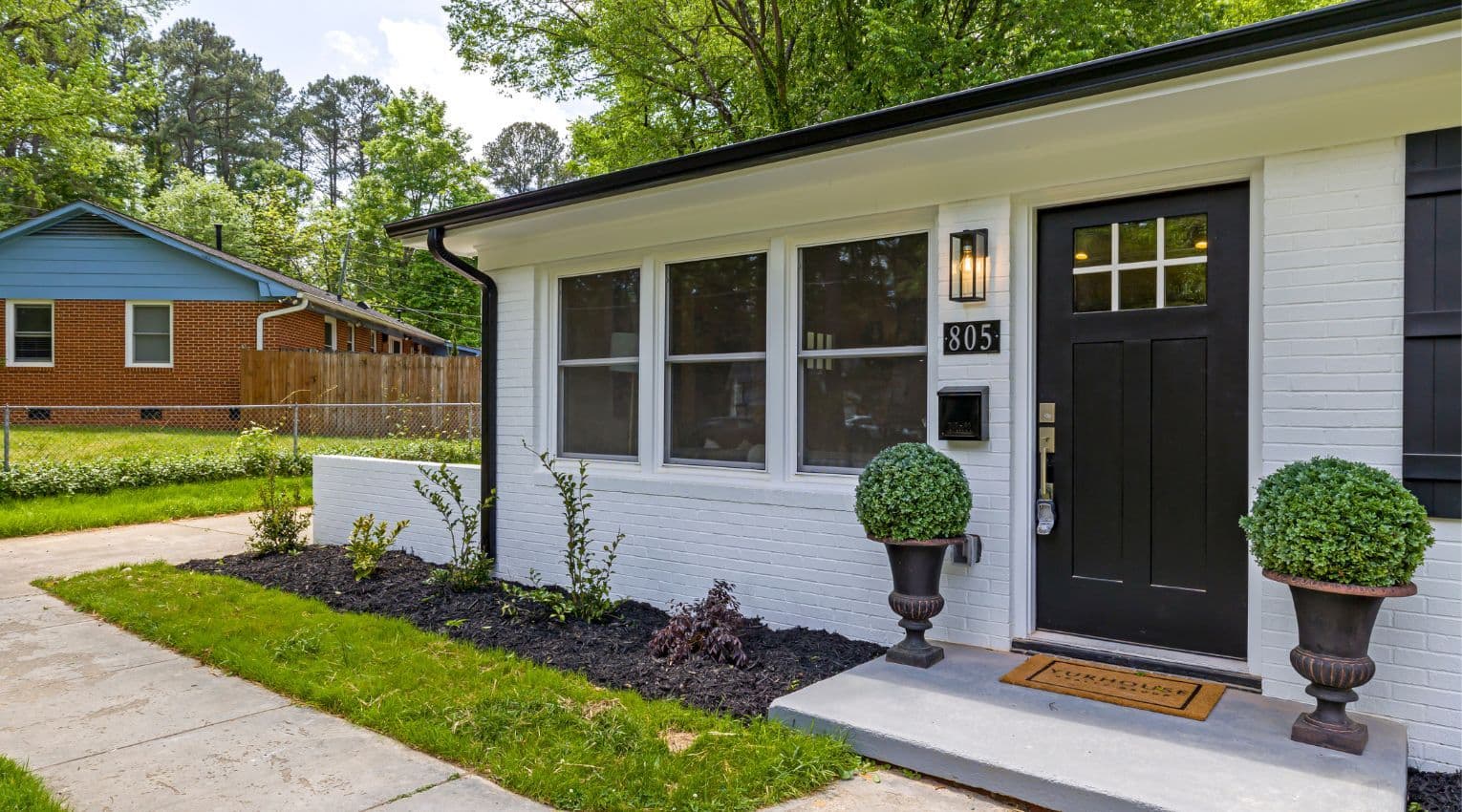How to Get Equity Out of Your Home Without Refinancing

Owning a home has many benefits — and one of the biggest is building equity. Home equity, which is the difference between your home's market value and your mortgage balance, can be a valuable financial resource. Whether you're looking to fund home repairs, pay off debt, or cover an emergency expense, accessing your equity can give you the cash you need to fund a variety of goals.
If you locked in a low interest rate during a period of favorable mortgage rates, refinancing might not make sense financially. Thankfully, there are several alternatives that allow you to access your home’s equity without sacrificing your mortgage rate. Below, we’ll explore five ways to tap into your home equity without refinancing, so you can make the right choice for your financial situation and goals.
Home Equity Loan
What Is a Home Equity Loan?
A home equity loan, also referred to as a "second mortgage," allows you to borrow a fixed amount of money against your home's equity. With this option, you'll receive a lump sum upfront, which you're required to repay in installments over a set term.
Pros:
- Predictable payments: Fixed monthly payments make it easier to stick to your budget.
- Stable interest rates: Most home equity loans have a fixed interest rate.
- Quick access to more funding: You may be able to pull more cash at one time from your equity with home equity loans, which can help with significant expenses like renovations or medical bills.
Cons:
- Monthly payments: You’ll be responsible for another new monthly payment to your existing mortgage.
- Risk of foreclosure: If you fail to make payments for an extended period of time, you could eventually lose your home.
- Costs: You may have to pay closing costs and fees.
When Might a Home Equity Loan Be a Good Fit?
This option could be ideal if you need a lump sum of money and have a clear plan to repay it.
Home Equity Line of Credit (HELOC)
What Is a HELOC?
A home equity line of credit works like a credit card, and allows you to pull from your home’s equity as needed, up to an approved limit. A HELOC typically comes with a variable interest rate, and you only pay interest on the amount you use.
Pros:
- Flexibility: You can borrow as much or as little as you need during the draw period, which is usually 5–10 years.
- Only pay interest on what you use: Interest-only payments during the draw period can make this option more affordable in the short term.
- On-demand access to funds: You can pull funds as you repay, much like a credit card, during the draw period.
Cons:
- Variable rates: Interest rates can fluctuate month to month, making for unpredictable and potentially high payments.
- Repayment uncertainty: Higher payments after the draw period may come as a surprise to some borrowers.
- Potential closing costs: Some HELOCs include upfront costs.
- Risk of Foreclosure: If you fail to make payments for an extended period of time, you could eventually lose your home.
When Might a HELOC Be a Good Fit?
HELOCs could be a smart choice if you have ongoing expenses, like home improvement projects, or want flexible access to your equity over time.
Home Equity Investment
What Is a Home Equity Investment?
An alternative to a traditional home equity loan or line of credit, a home equity investment (sometimes called a home equity agreement) gives you access to cash in exchange for a portion of your home's future value. There are no monthly payments, and repayment happens when you settle the investment through a buyout with savings, refinance, or sale of your home at or before the end of the term (which typically ranges from 10–30 years).
Pros:
- No monthly payments: Great for those in need of cash flow.
- Flexible use: Use the funds however you’d like: paying off debt, renovating your home, padding your emergency fund, etc.
- Flexible qualification criteria: home equity investment companies often regard credit scores and income history differently than traditional solutions. .
Cons:
- Sharing your home’s appreciation: You’ll give up a portion of your home’s future value.
- Long-term costs: This option could be more expensive than traditional products, depending on how much your home appreciates and the terms of the investment.
- Risk of Foreclosure: If you’re unable to settle the investment at the end of the term, you could lose your home.
When Might a Home Equity Investment Be a Good Fit?
This option could work well for you if you want to avoid monthly payments and you’re prepared to pay a percentage of your home's future value.
Reverse Mortgage
What Is a Reverse Mortgage?
A reverse mortgage is available to homeowners aged 62 and older. It offers access to your home’s equity as a lump sum, monthly payments, or a line of credit, without the need to repay until you either sell your home or it’s no longer your primary residence.
Pros:
- No immediate repayment requirement: You won’t owe anything until you sell or vacate the home.
- Income supplement: This option can be a great fit for retirees who are seeking additional cash.
- Non-taxable income: The funds from a reverse mortgage are typically not considered taxable income.
Cons:
- Potentially less equity for heirs: If the loan balance increases, your beneficiaries may inherit less.
- Higher costs: Reverse mortgages often come with higher fees and interest rates than other options.
- Age restriction: This option has an age requirement of 62, so younger homeowners won’t qualify.
When Might a Reverse Mortgage Be a Good Fit?
This option could be ideal for seniors who want to supplement their retirement income without taking on additional monthly payments.
Home Sale
What Does Selling Your Home Entail?
Perhaps the most straightforward way to access your home’s equity is to sell your home. While it means moving out of your current property, this option allows you to cash in on your equity in full.
Pros:
- Total equity access: You'll gain access to the full value of your home (minus any remaining mortgage balance).
- No new debt: You won’t be responsible for any loans or payments.
- Opportunity to downsize: You can use the profits from the sale to purchase a smaller and/or more affordable home.
Cons:
- Moving costs: Selling your home could require costs for agents, staging, and closing.
- Potential disruptions: Moving can come with both emotional and logistical challenges.
- Market unpredictability: Poor sale timing could reduce your home’s value.
When Might Selling Your Home Be a Good Fit?
This option could make sense if you're ready to move or downsize — or if you need complete and immediate access to your equity.
How to Choose the Best Option for You
You have many choices for accessing your home equity without refinancing, but each comes with its own benefits and risks. For homeowners who want to maintain their current mortgage rate, options like home equity loans, HELOCs, home equity investments, and reverse mortgages can provide much-needed flexibility.
To make a confident decision, it’s important to consider your financial goals, cash flow, and funding timeline to determine the best solution for you. If you're still unsure, consulting a financial advisor can help you gain clarity.
Regardless of your circumstances, your home equity can be the key to taking significant steps toward your financial goals.
Tap into your equity with no monthly payments. See if you prequalify for a Hometap investment in less than 30 seconds.
You should know
We do our best to make sure that the information in this post is as accurate as possible as of the date it is published, but things change quickly sometimes. Hometap does not endorse or monitor any linked websites. Individual situations differ, so consult your own finance, tax or legal professional to determine what makes sense for you.



